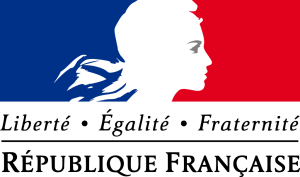By Lilian Nassi-Calò
Open access (OA) to scientific research results is the fairest way to be accountable to society on investment in research, especially those financed with public funds. Since the onset of the OA movement in the late 80s, numerous organizations, research institutions and nations adopted policies and mandates that determine the open access availability of scientific research outcomes. UNESCO pioneered in 1999, through the Declaration on Science and the Use of Scientific Knowledge. Hereafter came the US National Institutes of Health (NIH) to adopt the Data Sharing Policy, which was transformed in mandate in 2008, naming just two of an extensive list.
The world today recognizes digital technologies as the engine that drives economic, scientific and social transformation, where information (open data) is a valuable commodity, that every day is increasingly freed from boundaries and rights, which can be used to make the world a better place.
Following the example of leading countries in scientific research as the US, UK, Germany, Canada, the Netherlands and Italy, France, through the Centre National de la Recherche Scientifique (National Center for Scientific Research, CNRS) and the Ministère De l ‘Enseignement Supérieur et de la Recherche (Ministry of Higher Education and Research, MESR) drafted a bill called “For a Digital Republic” (Pour une République Numérique).
The project includes the definition of a protected access way to scientific results and their use by researchers in Scientific and Technical Information platforms (STI) and the implementation of this right resulting from research financed with public funds. Moreover, the European Commission (EC) is leading a reflection on the evolution of copyright and neighboring rights, recommending to member states to take steps to encourage the circulation and sharing of research outcomes.
In order to ensure transparency and the participation of society in the drafting of the bill before its submission to the Council of State, France has provided the text of the law1 for public consultation on the Internet from September 26th. Within three weeks from that date it will be possible to everyone – French citizens or not – to suggest modifications and improvements in the law. These suggestions will also be open to comments from Internet users. Suggestions and comments will be evaluated by the committee responsible for drafting the law and some of them may in fact be included. The French government will respond officially to the most frequent suggestions and the authors of the three most significant contributions will meet the Minister of State for Digital Affairs to explain their proposals in detail.
The objectives of the bill include:
1. Broader dissemination of data and knowledge. Open access to data and information of general interest favors knowledge based economy through wide access to public scientific research results.
2. Equal rights to all Internet users. Internet access is a right for everyone and should not be limited to a few, preserving, however, everyone’s privacy. Personal digital data (emails, documents, etc.) should be easily retrieved upon request to providers.
3. Internet access is considered a prerequisite for social inclusion, professional improvement and social life. Access to people with disabilities is also foreseen and access service subsidized by the government will be provided to families with financial issues.
Regarding scientific research, the law “For a Digital Republic” establishes as main points:
a. The exclusive copyright of data and literature resulting from research financed by public funds should not be transferred to publishers.
b. Researchers must have the right to file their data and work in digital format automatically without any embargo period imposed by publishers.
c. Data mining and related services play a key role in promoting OA to scientific data and literature. These services should not be hampered by trading platforms that distribute data and literature.
The bill on access to STI relied, from its inception, on the wording by researchers that integrate the CNRS-MESR commission. However, its text was not as fluent as it could have been. The wording of Article 9 that deals with Open Access, in particular, goes against the principles of free dissemination of scientific knowledge. A paragraph of that article cites “The rights of exploitation in digital format […] can be exclusively assigned to a publisher”, which contradicts the principles mentioned above. The text should exclude the possibility of giving exploration rights exclusively to a publisher when the research is publicly funded.
Regarding the embargo periods, the EC, in its recommendation of July 17th, 20122 on the access to scientific information, suggests that “publications resulting from research funded with public resources should be freely accessible, preferably immediately, the latest six months from the publication date and twelve months from the publication date for social sciences and humanities disciplines”. Article 9, however, mentions an embargo period from one year for articles in scientific disciplines and two years for humanities, twice as proposed by the EC.
Finally, regarding intellectual property, Article 9 states that “the provision of an article should not give rise to any commercial exploitation”, which is too vague and suggests the possibility that a publisher monopolizes the economic benefits that could arise from a scientific discovery which, in turn, would hinder the exploitation of scientific knowledge.
The public consultation period of the bill extends to Sunday, October 18th. Until then, it is possible for any Internet user to access the public consultation page (in French)3 and vote against (“Pas d’accord”) the current wording of Article 9, for the reasons stated above. Moreover, it is also advisable to access the amendment to Article 9 proposed by the Director of the CNRS, Renaud Fabre4, by voting for (“D’accord”) open access to scientific literature and data, reducing the embargo period to six months/1 year and the possibility of commercial exploitation of research results.
The French government is preparing a White Paper5 with the participation of important actors on the challenges of digital publishing and public research data, which will be available on the website of the Direction de l’Information Scientifique et Technique (Directorate of Scientific and Technical Information, DIST).
To the representatives of CNRS and authors of the bill, it is essential to exclude “any unfavorable French exception of the final text that is as protective of research as it is in other countries.” In their view, “to provide open access to knowledge, it is about giving society actors the means to interact with research.”
Your feedback is very important, support open access with your vote.
Notes
1. Décret n° 2015-1151 du 16 septembre 2015. Available from: http://www.legifrance.gouv.fr/affichTexte.do?cidTexte=JORFTEXT000031180596&dateTexte=&oldAction=rechJO&categorieLien=id&idJO= JORFCONT000031180576
2. Recommendation CE du 17 juillet 2012 (C(2012) 4890). Available from: https://ec.europa.eu/research/science-society/document_library/pdf_06/recommendation-access-and-preservation-scientific-information_fr.pdf
3. Consultation Projet de Loi pour une République Numérique. Available from: https://www.republique-numerique.fr/consultations/projet-de-loi-numerique/consultation/consultation/opinions/section-2-travaux-de-recherche-et-de-statistique/article-9-acces-aux-travaux-de-la-recherche-financee-par-des-fonds-publics
4. Proposition de Renaud Fabre, Directeur du CNRS-DIST pour le Projet de Loi pour une République Numérique. Available from: https://www.republique-numerique.fr/consultations/projet-de-loi-numerique/consultation/consultation/opinions/section-2-travaux-de-recherche-et-de-statistique/article-9-acces-aux-travaux-de-la-recherche-financee-par-des-fonds-publics/versions/une-duree-d-embargo-plus-courte-ne-pas-entraver-le-tdm-fouille-de-texte-et-de-donnees-et-ne-pas-interdire-une-exploitation-commerciale
5. White Paper is a an authoritative report or guide informing readers in a concise manner about a complex issue and how to address it. (Source: Wikipedia, https://en.wikipedia.org/wiki/White_paper)
References
Consultation Loi Numerique. Available from: http://www.cnrs.fr/dist/consultation-loi-numerique.html
Consultation Projet de Loi pour une République Numérique. Available from: https://www.republique-numerique.fr/consultations/projet-de-loi-numerique/consultation/consultation/opinions/section-2-travaux-de-recherche-et-de-statistique/article-9-acces-aux-travaux-de-la-recherche-financee-par-des-fonds-publics
Décret n° 2015-1151 du 16 septembre 2015. Available from: http://www.legifrance.gouv.fr/affichTexte.do?cidTexte=JORFTEXT000031180596&dateTexte=&oldAction=rechJO&categorieLien=id&idJO= JORFCONT000031180576
Direction de l’Information Scientifique et Technique. Available from: http://www.cnrs.fr/dist/
FAUSTO, S. The Evolution of Open Access: a brief history. SciELO in Perspective. [viewed 07 October 2015]. Available from: http://blog.scielo.org/en/2013/10/21/the-evolution-of-open-access-a-brief-history/
Proposition de Renaud Fabre, Directeur du CNRS-DIST pour le Projet de Loi pour une République Numérique. Available from: https://www.republique-numerique.fr/consultations/projet-de-loi-numerique/consultation/consultation/opinions/section-2-travaux-de-recherche-et-de-statistique/article-9-acces-aux-travaux-de-la-recherche-financee-par-des-fonds-publics/versions/une-duree-d-embargo-plus-courte-ne-pas-entraver-le-tdm-fouille-de-texte-et-de-donnees-et-ne-pas-interdire-une-exploitation-commerciale
Recommendation CE du 17 juillet 2012 (C(2012) 4890). Available from: https://ec.europa.eu/research/science-society/document_library/pdf_06/recommendation-access-and-preservation-scientific-information_fr.pdf
 About Lilian Nassi-Calò
About Lilian Nassi-Calò
Lilian Nassi-Calò studied chemistry at Instituto de Química – USP, holds a doctorate in Biochemistry by the same institution and a post-doctorate as an Alexander von Humboldt fellow in Wuerzburg, Germany. After her studies, she was a professor and researcher at IQ-USP. She also worked as an industrial chemist and presently she is Coordinator of Scientific Communication at BIREME/PAHO/WHO and a collaborator of SciELO.
Translated from the original in portuguese by Lilian Nassi-Calò
Como citar este post [ISO 690/2010]:





![Is the Bill and Melinda Gates Foundation’s new OA policy the start of a shift towards preprints? [Originally published in the LSE Impact blog in April/2024] Preprints-LSE-Impact_thumb](https://blog.scielo.org/en/wp-content/uploads/sites/2/2024/04/Preprints-LSE-Impact_thumb.png)












Dear Lilian,
I want to thank you for your bill. The consultation has terminated now for almost two weeks and we are waiting for the answer of the government.
The CNRS posted a synthesis on all reactions to this article on Open Access, that is available through the following link:
http://www.cnrs.fr/dist/z-outils/documents/Projet%20de%20loi%20-%20analyseCNRS_DIST.pdf
Best
Frédéric Hélein